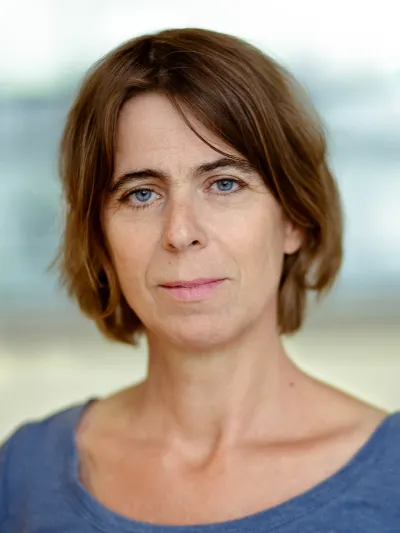Researcher's World Blossin
What is fire made of? Who actually determines what the words mean? Why do windmills turn? What is infinity? Children ask many questions about reasons, about causes and are inquisitive by nature.

- Dr Salman Ansari
- Marion Bohn
- Detlef Diskowski
- IFFE e.V.
- Youth Education Centre Blossin e.V.
- Ministry of Education, Youth and Sport of the State of Brandenburg
- LISUM Berlin-Brandenburg
- GOrBiKS-Transfer Office
The background
What is fire made of? Who actually determines what the words mean? Why do windmills turn? What is infinity? Children ask many questions about reasons, about causes and are inquisitive by nature. Their interest in research is particularly intense in the "real world", beyond the protective pedagogical bells of day-care centres and schools. Nature is not an aesthetic refuge for children, but a laboratory for research and experimentation. In the great outdoors, the world opens up to children with all its mysteries, secrets and beauties. It stimulates the senses and the imagination and encourages spontaneous processes of creative exploration and discovery. The natural drive to create and shape, to recognise and reflect becomes dominant in such an environment.
A modern culture of exploration and reflection is the educational policy goal that forms the basis of the education plans of all the federal states. Nevertheless, the promotion of independent research, critical thinking and creative brainstorming is often neglected in the everyday educational routine of kindergartens, after-school care centres and schools. In order for children to retain their curiosity, to better recognise reasoning contexts and to apply their cognitive capacity to new questions and problems, they need, on the one hand, a stimulating environment – an environment with a calling character.
On the other hand, a pedagogical interaction is needed that provokes reflection and at the same time strengthens their confidence in their own reason. How this interaction can be best shaped by teachers and educators is not obvious; it is an expression of pedagogical art and craft. In fact, answering this question is the result of an ongoing research process for all educators.
Supporting educators in creating challenging joint research and reflection situations with the children and in embarking on the research process themselves in order to find out how children learn is the mission of Forscherwelt Blossin.
The importance of cognitively stimulating interaction (sustained shared thinking [1]) in the joint research process between children and educators as the basis of excellent early education is scientifically proven. Broad studies in the UK show that "periods of shared thinking processes are a necessary precondition for particularly effective early education". [2] This finding fits in with the current state of knowledge in educational research, according to which the support, stimulation and challenge of the children's constructional achievements by the educators are regarded as fundamental for the acquisition of knowledge. [3]
Idea
The Blossin Research World, with its indoor and outdoor world, is an extracurricular place of learning, play, exploration, discovery, wonder and questioning for children of later kindergarten and primary school age – as well as for their educators. Together with children and educators, experts develop model situations in which methods of scientific reflection can be tried out in a community of inquiry, a community of researchers consisting of children and educators: Observation, experimentation and conceptualisation, logical argumentation, thought experiments and making connections. In the research processes, teachers take up the current individual topics, questions and interests, the previous knowledge and the goals of the children and support them in this. Based on observations and conversations with the children, they set impulses that individually promote the children's and the educators' process of discovery and creation.
[1] "Man spricht von gemeinsam geteilten Denkprozessen (sustained shared thinking), wenn zwei oder mehr Individuen zusammen einen gedanklichen Weg einschlagen, um ein Problem zu lösen, ein Konzept zu konkretisieren, eine Aktivität zu bewerten, eine Geschichte weiterzuerzählen usw. Beide Parteien müssen zu diesem Denkprozess beitragen und das jeweilige Verständnis über ein Problem bzw. einen Sachverhalt entwickeln und erweitern." Sylva, K. u. a., The Effective Provision of Pre-School Education Project – Zu den Auswirkungen vorschulischer Einrichtungen in England. In: Faust, G. u.a. , Anschlussfähige Bildungsprozesse im Elementar- und Primarbereich, Bad Heilbrunn, 2004, S. 154.
[2] Ebd.
[3] König, Anke: Pädagogik der frühen Kindheit. In: Coelen, Thomas, Otto, Hans-Uwe: Grundbegriffe der Ganztagsbildung, Wiesbaden, 2008.
Current study information and privacy policy
